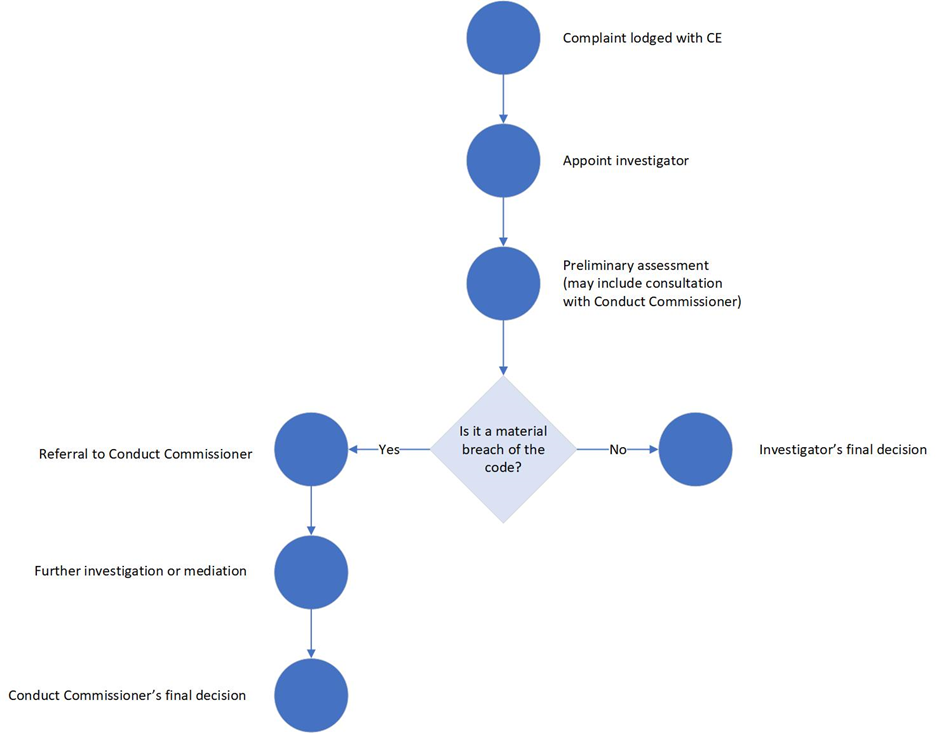The Local Government Act 2002 requires us to adopt a code of conduct that sets clears expectations for behaviour and requires elected members to comply with the code.
Ngā tikanga ārahi mema pōti Elected members' code of conduct
Expected behaviour of our elected members
The code of conduct sets out:
- the behaviour of members toward one another, council staff and the public
- how elected members disclose information
- legislation that applies to the actions of members
- the relationship between elected members and management.
Get a copy of the elected members code of conduct
Making a code of conduct complaint
There is a process for members of the public, other elected members or the chief executive to raise concerns if they believe an elected member has breached the code of conduct while performing their official duties.
Key considerations:
- Complaints must describe which part of the code has been breached and provide evidence of the breach.
- Complaints must relate to an elected member’s official duties, not their private life. Complaints about personal matters will not be assessed.
- The criteria for what is considered as a breach is set high to protect the rights of elected members as private citizens, especially their freedom of expression and political speech.
- The process focuses on solving problems and aims to address concerns positively wherever possible.
How to make a complaint
- Clearly outline your complaint or complaints and quote the relevant section of the code that you believe has been breached and include evidence.
- Email Chief Executive Phil.Wilson@aucklandcouncil.govt.nz with your complaint.
- Explain why you think the code has been breached and tell us how you have tried to resolve the concerns you are raising.
- Explain how you hope the problem will be solved.
What happens next
Overview of the code complaints process

A flowchart detailing the process for making a code of conduct complaint.
Code complaints process
Appointment of an investigator
When we receive a complaint, the chief executive will appoint a suitable investigator to assess it.
The chief executive is responsible for informing those affected once they receive a complaint (clause 4.5). In some cases, the investigator will do this.
Preliminary assessment
The investigator will decide if the issue can be resolved and if it needs further investigation.
If they decide that there is a serious breach involved, they will refer the matter to a conduct commissioner.
If the investigator finds that the complaint involves a minor breach or should be dismissed, they may make optional recommendations to those involved.
Conduct commissioner
An independent conduct commissioner assesses serious breaches or complex cases that are referred to them. They may conduct a full investigation or recommend mediation. If they investigate, they will provide a formal report and may recommend penalties.
How long the process takes
We will do our best to assess complaints quickly. However, these matters can often take time, so there is no set timeframe for completion. We will keep you updated throughout the process.
Reviewing a decision
Decisions made by investigators and the conduct commissioner are final under the code of conduct.
If you are unhappy with the outcome, you can ask the Ombudsman to review the process that was followed.
